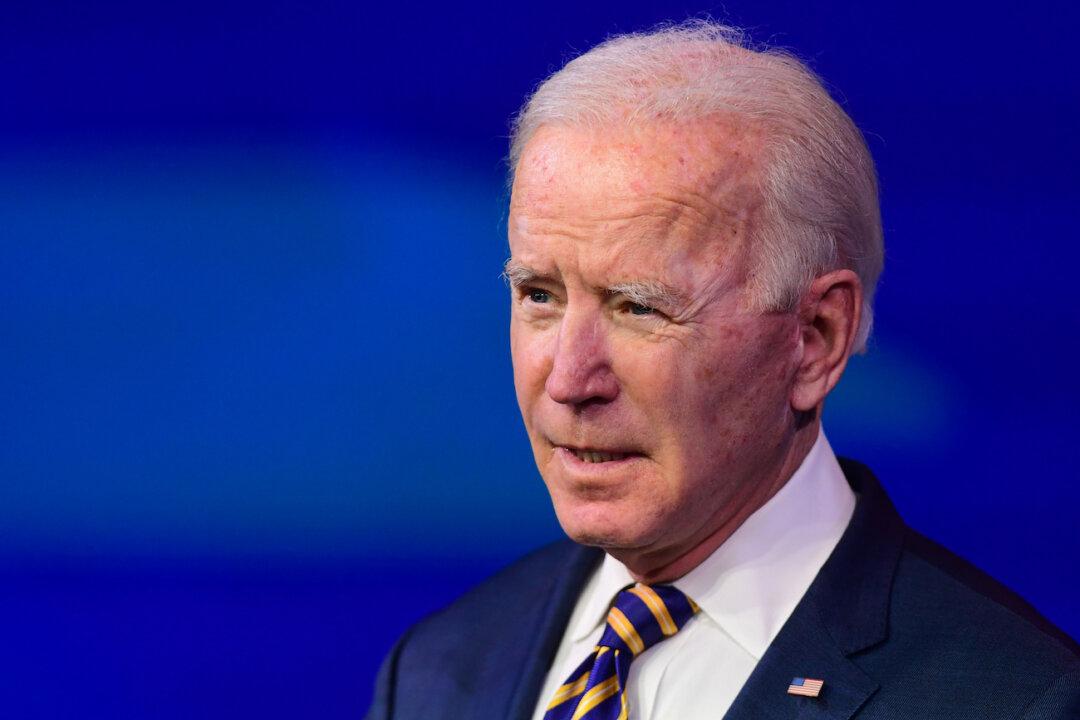President-elect Joe Biden late Thursday announced a $1.9 trillion stimulus plan to address the ongoing CCP virus pandemic in the United States.
“We have no time to waste when it comes to getting this virus under control and building our economy back better,” he announced in a statement. In his address to the nation on Thursday evening, he said that immediate action will prevent long term economic damage, adding that “the benefits will far surpass the costs.”




